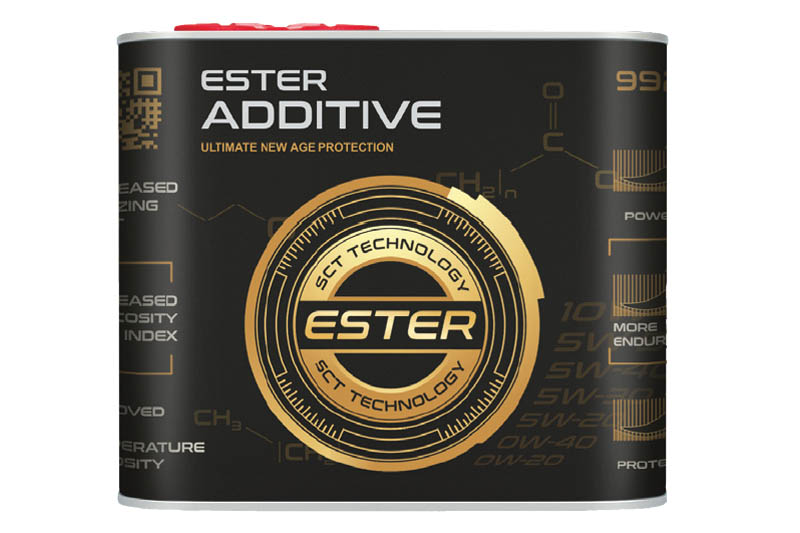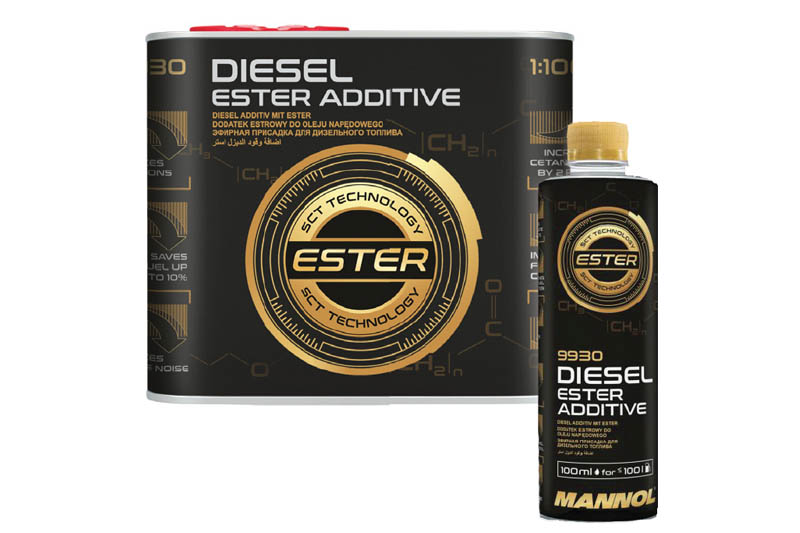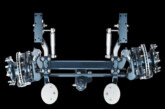
Based on aerospace technology, esters added to CV oil or fuel tanks are the ‘elixir of youth’ for engines. Jevgenij Lyzko, Managing Director of lubricant specialist Mannol UK, explains.
From long-haul trucks to urban vans, the ultimate goal of almost every commercial vehicle workshop service is optimum engine performance. Achieving this depends on effective lubrication, without which the engine parts cannot move smoothly under high loads, temperatures and speeds. CV engine lubrication can, however, be greatly improved by one simple addition: esters. This class of fully synthetic, group V base oils boasts lubrication properties that significantly surpass traditional group III (hydrocracking) and IV (PAO) synthetic base oils.
By regularly adding a quality ester to a truck or van’s engine oil, transmission oil or fuel tank, CV workshops can actively reduce component friction and ensure the ultimate engine wear protection. For fleet operators, this delivers several valuable benefits, from extending vehicle lifespan and reducing maintenance costs, to improving cold starts and enhancing fuel consumption.
How esters work
Esters for automotive applications originated in the space-age ester technology used to lubricate rocket engines, passenger aircraft and supersonic jets. In the case of German lubricant expert SCT-Vertriebs, that aerospace technology was synthesised into its SCT Ester range of advanced, anti-wear additives for every size and type of vehicle engine, made available under the Mannol brand.
The secret behind how esters improve lubrication lies in the complex structure and powerful polarity of their molecules. This literally magnetises them to metal surfaces, forming a dense, protective oil film over moving parts that protects them from wear and improves load bearing. With no moisture or air able to pass through, there is no oxidisation or corrosion.
Highly stable ester molecules can withstand temperatures of more than 200°C without boiling or changing their viscosity; and they ensure excellent oil pumpability even at up to -45°C for perfect cold starts. They can also penetrate rubber seals and restore their elasticity, preventing oil leaks. What’s more, esters are of plant origin, making them far more environmentally friendly to produce than other base oils.
Key esters
There are several SCT Ester products from Mannol UK that workshops can rely on to provide engine protection for the majority of CV applications. These include:
Mannol Ester Additive (9929)
A highly effective oil additive for both diesel and petrol engines that have any type of oil, whether synthetic, semisynthetic, mineral or containing esters.
- Dense ester-oil film increases engine/transmission load capacity, reduces wear, prevents build-up of deposits and lengthens engine and component life
- Reduces oil evaporation, extending change intervals
- Excellent low temperature properties deliver better cold starts
Top Tip:
Engine benefits from esters build up over time. Applying MN9929 regularly in a ratio of 500ml per 5L of oil can ultimately achieve fuel savings of up to 5%.
Mannol Diesel Ester Additive (9930)
This fuel additive for diesels reduces emissions and can save up to 10% on fuel when used continuously in the ratio of 50ml per 50L of fuel.
- Strong, stable lubricating film adheres to each fuel system component, significantly reducing friction and wear in the combustion chamber
- Completely burns down with fuel, leaving no carbon deposits
- Contains cleaning additives that remove dirt and carbon deposits caused by low-grade diesel
- Ignition promoters ignite the fuel mixture faster, improving fuel efficiency
Top Tip:
By eliminating the main cause of plunger wear – low quality, dry diesel fuel – this ester is especially beneficial for vehicles with high pressure fuel pumps in a pair of plunger-sleeve and pump injectors.










